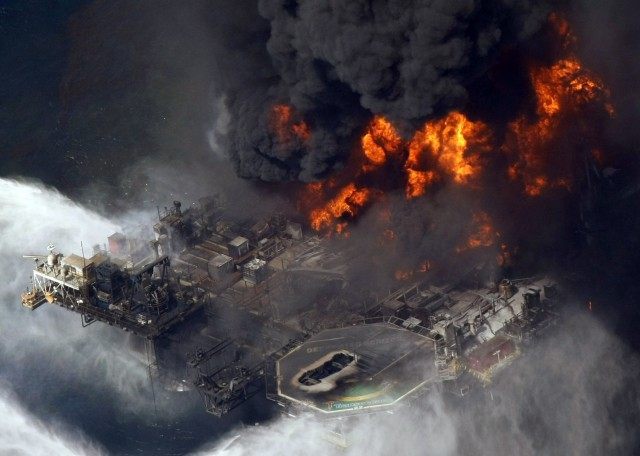The U.S. Department of Justice has offered BP a $20.8 billion settlement over the 2010 Gulf of Mexico Deepwater Horizon oil spill that will allow it a $5.35 billion tax windfall.
The Justice Department proposed a District Court agreement that will allow BP to treat $15.3 Billion of the settlement as a normal “cost of doing business” deduction. The bulk of the cash expenditures will be is comprised of tax-deductible natural resource damages payments, restoration, and reimbursements to government entities. Only $5.5 billion will be treated as a non-deductible Clean Water Act penalty fine.
As a result of the very unique tax agreement, BP will be able to claim what US PIRG calls “an estimated $5.35 billion as a tax windfall, significantly decreasing the public value of the agreement, and nearly offsetting the cost of the non-deductible penalty.”
The Deepwater Horizon sea-floor “blowout” of the Macondo Prospect well, which caused the largest petroleum spill in global history, began on 20 April 2010 in the Gulf of Mexico. The BP-owned and Transocean-operated well exploded, and the drilling platform sank with eleven people missing and still presumed dead.
About 4.9 million barrels of oil poured out of the well for 87 days until it was capped on 15 July 2010. Numerous investigations explored the causes of the explosion and the size of the spill. Most tended to center on defective cement used in the oil well casing.
Despite environmentalists claiming that the spill would last for decades, Breitbart News reported that about 200,000 tonnes of oil from the Deep Water Horizon spill were devoured by Thalassolituus oleivorans bacteria that normally munch on petroleum seepage as a natural product of the decayed plants and animals that are part of their diet.
Strains of the bacteria that are found all over the world extract oil’s nitrogen for metabolic energy and release CO2 and clean water as waste products. One of the reason dispersants were used after the disastrous spill was to break oil slicks above and below the surface into smaller droplets so that blooms of billions of hydrocarbon-chewing bacteria could get surface angles to gorge on the oil more quickly.
On Dec. 15, 2010, Attorney General Eric Holder announced a civil lawsuit against BP and several co-defendants, seeking to hold them accountable for the Deepwater Horizon disaster. The federal lawsuit culminated in a three-phase civil trial in which the United States proved, among other things, that the spill was caused by BP’s gross negligence.
BP and the United States Department of Justice settled federal criminal charges in November 2012, with BP pleading guilty to 11 counts of manslaughter, two misdemeanors, and a felony count of lying to Congress. BP also agreed to four years of government monitoring of its safety practices and ethics, and the Environmental Protection Agency announced that BP would be temporarily banned from new contracts with the US government.
The current proposed settlement between BP and the United States and the five Gulf states to resolve civil claims against BP, when added to the previous of $42.2 billion in criminal payments and civil settlements to a separate mitigation trust fund, will bring the total Deepwater Horizon bill for BP to $63 billion.

COMMENTS
Please let us know if you're having issues with commenting.